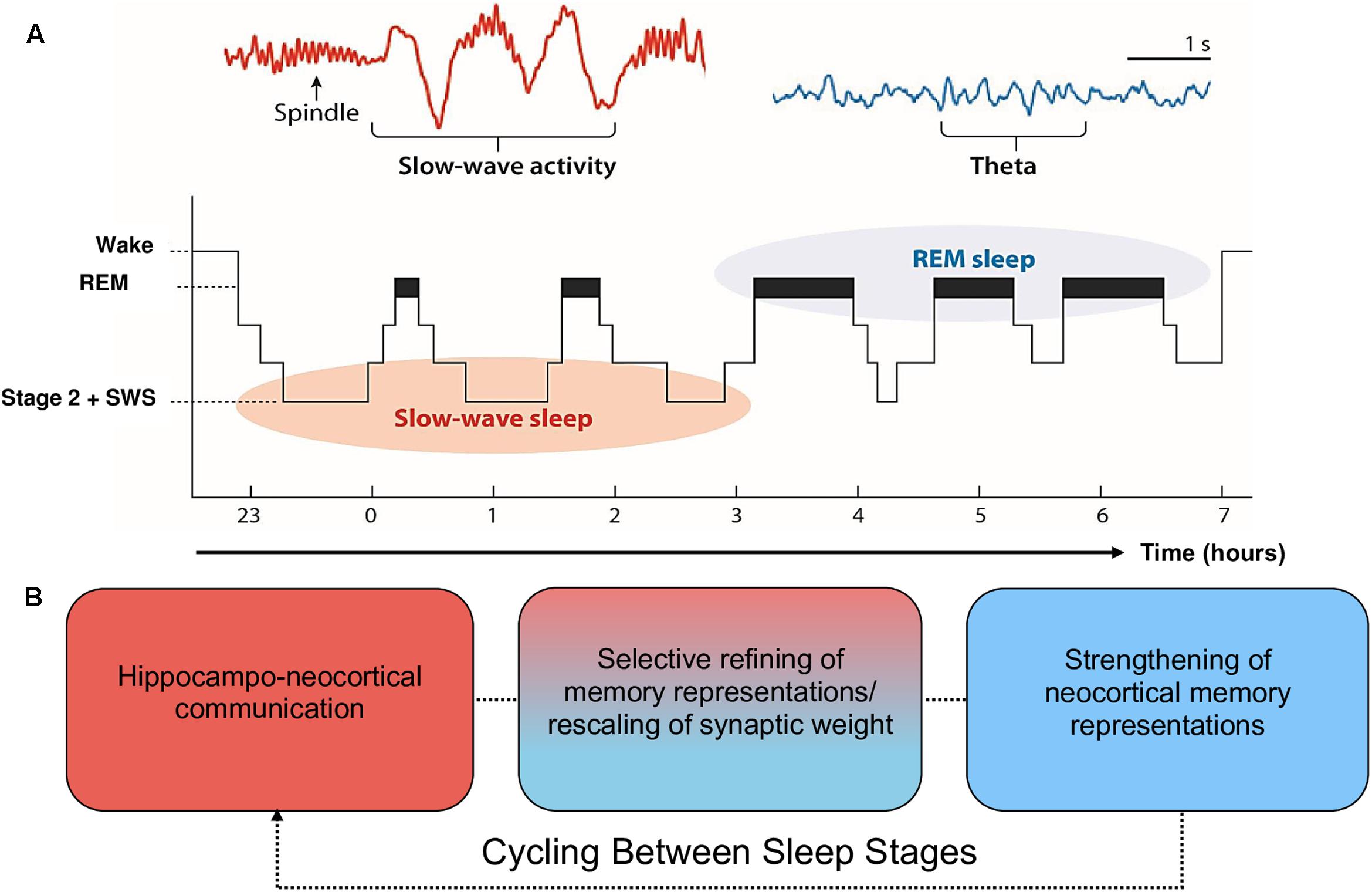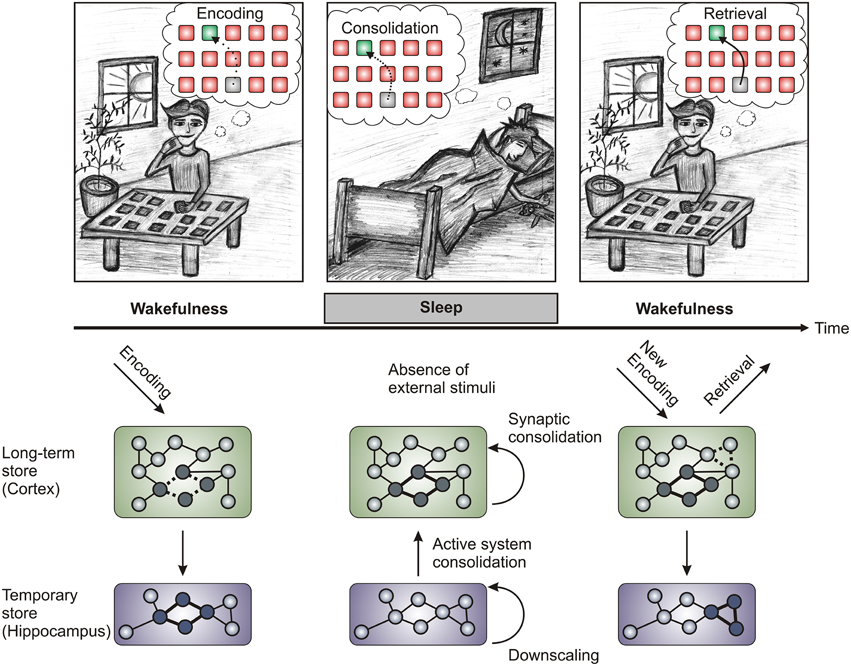Podcast - Enhancing Learning Retention with Sleep: The Role of Sleep in Memory Encoding and Consolidation
Learn how sleep improves memory retention, optimizes the encoding process, and enhances cognitive function for better learning outcomes in students and professionals.
Podcast: Learning Retention with Sleep: Optimizing the Encoding Stage through Consolidation
This Podcast discusses the role of sleep in optimising the encoding stage of learning, ultimately leading to better memory retention. It argues that adequate sleep after learning sessions is essential for memory consolidation, where newly acquired information is stabilised and strengthened for long-term storage. The post supports this recommendation by outlining benefits such as improved memory consolidation and enhanced cognitive function, citing research studies and highlighting the broad applicability of this principle across various educational and professional settings.
Briefing Doc: Sleep and Learning Retention Source: Excerpts from "Learning Retention with Sleep: Optimizing the Encoding Stage through Consolidation"
Main Theme: Adequate sleep after learning significantly improves memory retention by optimising the encoding stage of learning.
Key Ideas and Facts:
• Sleep and Memory Consolidation: Sleep, particularly REM and deep sleep, is important for consolidating memories, making them more stable and accessible for recall. This is supported by research showing that:
◦ "Sleep after learning helps stabilize and strengthen new memories" (Walker & Stickgold, 2006).
◦ "During sleep [...] the brain processes and consolidates new information" (Diekelmann & Born, 2010).
◦ Individuals who sleep after learning demonstrate better memory retention than those who do not (Rasch & Born, 2013).
• Sleep and Enhanced Cognitive Function: Sleep deprivation negatively impacts attention, working memory, and executive function, all vital for effective learning (Lim & Dinges, 2010). Adequate sleep, however:
◦ Allows the brain to effectively absorb and process new information (Stickgold, 2005).
◦ Facilitates the reorganisation of neural connections for learning and adaptation (Tononi & Cirelli, 2014).
• Broad Applicability and Proven Effectiveness: ◦ Prioritising sleep improves academic performance and information retention in students (Ahrberg et al., 2012).
◦ In corporate settings, encouraging sleep improves job performance and information retention (Harrison & Horne, 2000).
Conclusion: Emphasising the importance of adequate sleep is important for optimising learning. Incorporating sleep into education and training programmes significantly enhances encoding, consolidation, and ultimately, long-term retention.
Key takeaway: Sleep is not a luxury but a fundamental pillar of effective learning.
Frequently Asked Questions: Sleep and Learning
Why is getting enough sleep after learning so important for retaining new information?Adequate sleep following a learning session optimises the encoding stage through a process called memory consolidation. During sleep, particularly the deeper stages and REM sleep, the brain actively works to stabilise and strengthen newly formed memories. This process transfers information from short-term memory to long-term storage, making it more durable and easier to recall later. Think of sleep as the "baking" process that solidifies the "ingredients" of new knowledge, preventing it from being easily forgotten.
Sleep deprivation significantly impairs several key cognitive functions that are essential for effective learning. It reduces our attention span, diminishes working memory capacity (the ability to hold and manipulate information temporarily), and hinders executive functions such as planning and problem-solving. When these cognitive abilities are compromised, it becomes much harder to properly absorb, process, and initially encode new information. Furthermore, insufficient sleep disrupts the memory consolidation process that happens overnight.
"Encoding" refers to the initial phase of learning where new information is first taken in and processed by the brain. It's like gathering and mixing the ingredients for a cake. While encoding is the essential first step, it's not enough for long-term retention. Sleep enhances the effectiveness of encoding by allowing the brain to consolidate these newly processed pieces of information, making them more stable and readily available for future recall. Without sufficient sleep, the initial encoding might be weak and the information more likely to fade.
Memory consolidation is the process where newly encoded, fragile memories are transformed into more stable, long-term memories. Sleep plays a vital role in this transformation. During sleep, the brain replays recent experiences and newly acquired knowledge, strengthening the neural connections associated with that information. This process often involves transferring memories from the hippocampus (involved in initial learning) to other areas of the brain for long-term storage. Sleep provides the ideal neurobiological environment for this reorganisation and strengthening to occur.
Yes, numerous research studies support this link. For example, a study by Walker and Stickgold in 2006 showed that individuals who slept after learning a new skill performed significantly better on tests of that skill the next day compared to those who were kept awake. Other research has used brain imaging and cognitive tests to demonstrate the active processing and consolidation of information that occurs during sleep, leading to improved recall and retention (Diekelmann & Born, 2010; Rasch & Born, 2013).
The benefits of adequate sleep for learning and memory retention extend far beyond just students. This principle applies to individuals of all ages and across various professions and life situations. Whether you are a professional needing to retain complex job-related information, someone learning a new language or musical instrument, or simply trying to remember the names of new people you meet, sufficient sleep after learning significantly enhances your ability to remember that information effectively.
Several practical strategies can improve sleep quality. Maintaining a consistent sleep schedule by going to bed and waking up around the same time each day (even on weekends where possible) helps regulate the body's natural sleep-wake cycle. Optimising your sleep environment by ensuring it is dark, quiet, and at a comfortable temperature is also important. Minimising exposure to blue light emitted from electronic devices like phones and tablets in the hours leading up to bedtime can also significantly improve sleep onset and quality.
While the sources primarily focus on sleep's critical role in memory consolidation (strengthening and stabilising new memories), there is emerging research suggesting that sleep also plays a role in other memory processes related to learning. This includes the potential for sleep to aid in extracting generalisations and insights from learned material and even in improving memory retrieval – the ability to access stored memories when needed. However, the main emphasis in the provided sources is on the impact of sleep on the encoding and consolidation stages of learning.
Published in Current Opinion in Neurobiology 2017Sculpting memory during sleep: concurrent consolidation and forgetting
Source: https://www.frontiersin.org/journals/human-neuroscience/articles/10.3389/fnhum.2018.00018/full
Source: https://www.ideafit.com/sleep-deprivation-cognitive-function-and-health-consequences/
Source: https://slideplayer.com/slide/8636882/
Timeline of Main Events Covered in the Sources
2000: Research by Harrison and Horne is published, indicating the impact of sleep deprivation on decision-making. This work later supports the argument for the importance of sleep in corporate training for improved job performance and information retention.
2005: Research by Stickgold is published, focusing on sleep-dependent memory consolidation. This study highlights how sleep allows the brain to better absorb and process new information.
2006: A study by Walker and Stickgold demonstrates that sleep after learning helps stabilise and strengthen new memories, showing significantly better performance in a sleep group compared to a sleep-deprived group who learned a new skill.
2009: Walker publishes research on the role of sleep in cognition and emotion, further underlining the importance of sleep for overall brain function.
2010: Research by Diekelmann and Born explores the memory function of sleep, detailing how the brain processes and consolidates new information during sleep. Another study by Lim and Dinges publishes a meta-analysis showing the negative impact of short-term sleep deprivation on cognitive variables like attention and working memory.
2012: Research by Ahrberg et al. finds a link between sleep quality and academic performance, suggesting that adequate sleep improves information retention in students.
2013: Rasch and Born publish research specifically about sleep's role in memory, further solidifying the understanding of this connection.
2014: Research by Tononi and Cirelli explores the link between sleep, brain plasticity, and memory consolidation, highlighting how sleep facilitates the reorganisation of neural connections.
Source: Learning Retention with Sleep: Optimizing the Encoding Stage through Consolidation
If you found this article useful, remember to share it with your network.
Explore this topic and other solutions at Rhizome.ca
Related Research Topics:
-
The Impact of Sleep on Memory Consolidation and Recall
-
How REM Sleep Enhances Learning and Cognitive Function
-
Sleep Deprivation and Its Effects on Learning and Memory
-
The Role of Sleep in Neural Reorganization and Brain Plasticity
-
Optimizing Sleep for Better Academic and Job Performance
-
The Science Behind Memory Encoding and Sleep’s Role
-
Sleep’s Effect on Long-Term Knowledge Retention
-
Cognitive Function Improvement Through Sleep
-
The Relationship Between Sleep Quality and Learning Efficiency
-
Practical Sleep Habits for Boosting Memory and Learning









.png)